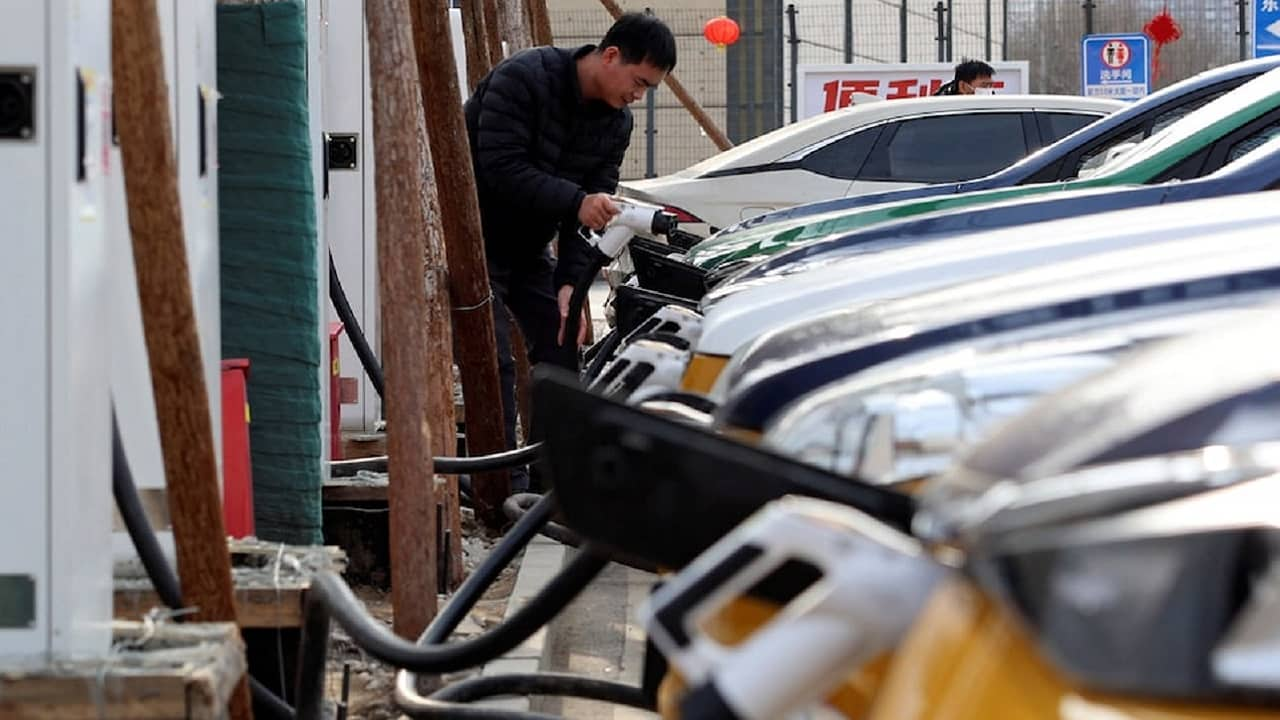
BUSINESS
India’s EV race with China depends on trains
Subsidies and more charging points in cities won’t be enough. Range anxiety must be addressed

BUSINESS
DeepSeek is India’s final call to board the AI flight
With the private sector reluctant to invest in foundational technologies, the state must step in

BUSINESS
India’s third shot at tax reform mustn’t miss the target
While the middle class hopes for urgent relief, New Delhi wants more people to pay taxes. The new code needs to do a balancing act

BUSINESS
How a $2.6 trillion fund was taken for a ride in India
A front-running scandal shows how tough it is for large investors to trade Indian stocks without tipping their hand

BUSINESS
Trump Tariffs: The wealthy will shield Asian banks
A fresh round of US levies could hurt trade finance and other loans. The rich hold the key for Hong Kong and Singapore lenders

BUSINESS
Investors are pulling money from Indian stocks in favour of China
Global investors are taking money off the table in favor of China as challenges mount
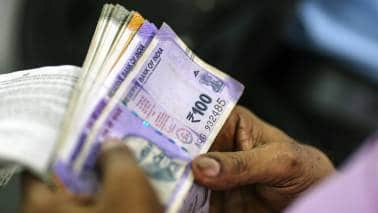
BUSINESS
India’s shortage of deposits has a taste of China’s past
The smaller economy is emulating its larger rival’s post-2001 tight money policy. But illiquid banks are a hurdle to credit-fueled growth
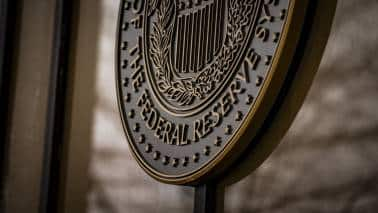
BUSINESS
How the US Federal Reserve will help Singapore REITs outshine banks
Lower interest rates may make landlords’ incomes more attractive just as lenders’ margins start to compress

BUSINESS
India is engineering a future as AI disrupts the software industry
Multinationals are relying on talent in the country to create intellectual property, and not just cut costs

INDIA
What a medical exam scandal says about Modi’s India
Progressive states have long opposed the nationwide medical entrance test as discriminatory. Suspicions of rigging have boosted their claim to scrap it

BUSINESS
India’s fast-growing economy has a problem
A long-delayed survey of small firms offers clues to what ails the fast-growing economy

BUSINESS
For an AI lesson, India must look back — 300 years
The nation’s outsourcing dominance may go the same way as its textile industry, which lost out to automation during the first industrial revolution

BUSINESS
India’s political reset won’t kill growth
Coalition governments were the norm for 25 years before Narendra Modi’s arrival. Investors need to get used to them again
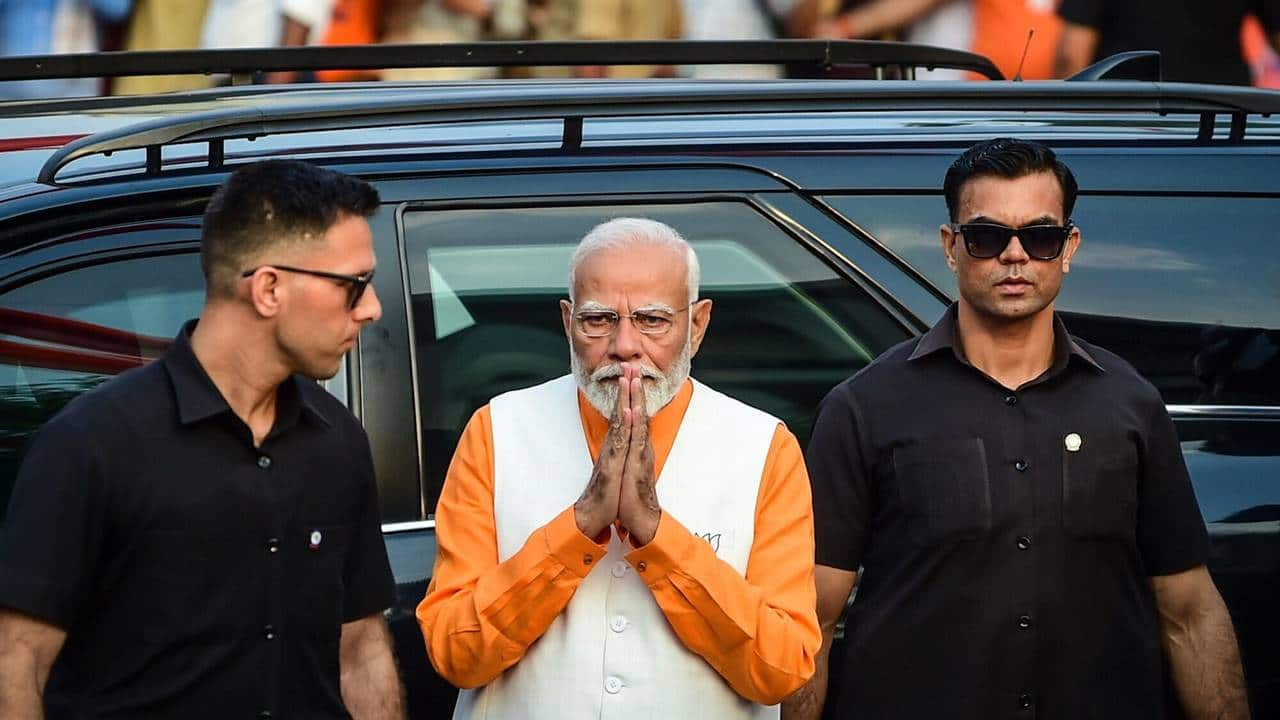
LOK-SABHA-ELECTION
India Elections: Markets must account for strain on household budgets
Strain is growing on household budgets. They need rebuilding before a fresh investment spree

BUSINESS
India Inc must only cheer growth, not question it
Any doubt about official statistics or policies can land companies in hot water in a nation where the domain of acceptable corporate speech has shrunk

BUSINESS
Class-action suits come to Indian markets, finally
The first two legal challenges will be crucial in establishing the legal precedent for checking corporate misbehaviour
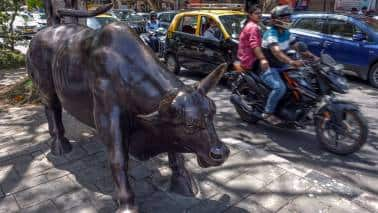
BUSINESS
India’s regulators SEBI and RBI are acting tough to restore credibility
The two regulators have their individual goals beyond the common goal to restore credibility. SEBI is concerned about the froth in asset prices, concentrated positions in illiquid small-cap shares and an unhealthy craze among retail investors for trading options. The RBI’s worries run deeper as India could be on the cusp of a new multiyear investment cycle and losing oversight of credit flows at this critical juncture could turn out to be a costly mistake

BUSINESS
Indian fintech is fast, furious — and problematic
Three fundamental sources of infirmity need fixing. First, the KYC process using Aadhaar must be made credible and secure. Second, since most UPI transactions are free, traditional lenders have little incentive to shorten their technology-upgrade cycle. Third, the monopoly of the National Payments Corporation of India, which runs the UPI, must end. As long as the country’s preferred system for moving money online is devoid of fair charges — and free from competition, there are great risks

INDIA
India’s farmers need a better deal
One option is that when the harvest is sold to private parties below the MSP, the state would have a legal duty to pay the farmer the difference as cash, directly into their bank accounts. In case traders band together to underpay farmers who would bargain less because New Delhi would pick up a part of the tab, farm producers’ organisations acting as buyers of last resort could check the collusion problem

BUSINESS
The Netflix model may just save India’s online learning apps
The funding winter for edutech is real — the shock from Byju’s collapse is still playing out. Players are looking to marry the scale of cloud computing with the classroom clout of charismatic, million-dollar tutors to create a winning hybrid. A coaching-centre heavyweight like Allen building digital muscle or an internet sensation like PhysicsWallah entering the brick-and-mortar world could work, provided companies don’t eplicate Byju’s hyper-aggressive sales machine or spend as lavishly as it did on unrelated acquisitions

TRENDS
RBI's Paytm freeze shows faulty understanding
The RBI’s press release detailed all the ways in which it was restricting Paytm Payments Bank. The statement didn’t have a word about what customers are supposed to do. This has caused unnecessary chaos for 50 million merchants, for whom online payments are synonymous with the Paytm app, connected to a Paytm Payments Bank account
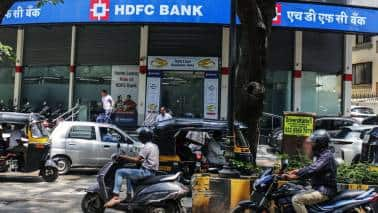
BUSINESS
China, India banks under pressure from different liquidity stories
In China, creditors are drowning in cheap central-bank cash, but loan demand is muted. In India, banks are in the middle of their fastest expansion in a decade, but they are parched for liquidity

BUSINESS
India's lending boom must take the next logical step through UPI
Even as it grows, credit can still become safer if UPI spreads access to a wider group of borrowers and draws in more lenders. With broader access to credit, private consumption, which is expanding 3 percentage points slower than the economy’s overall 7%-plus growth rate, could become more stable

BUSINESS
India’s IPO market is busy. It’s also broken
A study of IPOs since 2004 over a ten-year trading cycle reveal that they yielded negative returns for investors. Though it’s the regulator’s job to ensure that companies with reasonably solid prospects come to public markets and offer stock at a price that allows long-term wealth creation, SEBI's measures have proven too contentious















